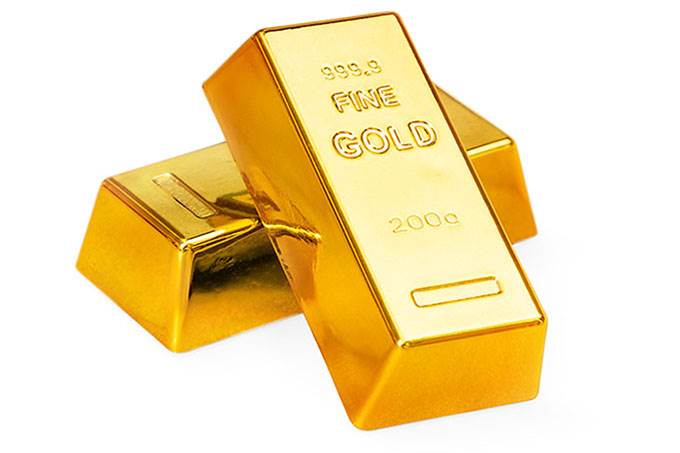 At the beginning of the week, the gold futures market rallied, advancing 5.59 percent on Monday and adding 5.95 percent during the following session.
At the beginning of the week, the gold futures market rallied, advancing 5.59 percent on Monday and adding 5.95 percent during the following session.
The US Federal Reserve's latest decision to launch several programs to aid the American economy helped gold and equities this week. The Federal Reserve pledged to continue with its asset purchasing program and to move into buying corporate bonds in primary and secondary markets and through exchange-traded funds.
In addition, the expectations for an agreement on a US $2 trillion stimulus package to respond to the economic effects of the coronavirus outbreak increased optimism among investors. The stimulus agreement, which was reached early today, includes sending direct payments and jobless benefits to individuals, businesses, and states.
The new stimulus agreement will be implemented soon and was reached despite the struggle between the Republican and the Democrat parties over the weekend and during the earlier part of this week. Reportedly, Democrats insisted on more oversight on the US $500 billion that will be employed to bail out businesses and on stronger workers protection.
Other central banks and governments have joined the Federal Reserve and the US government on a joint effort to cushion the impact of the outbreak in the economy and avoid an economic recession. The European Central Bank also recently launched a bond-purchasing program and the Bank of England decided to cut its cash rates to 0.1 percent, while countries like Germany are implementing fiscal stimulus packages to help their citizens and businesses.
Recently, gold lost its safe-haven status, mostly because investors were selling off to cover margin calls, given their preference for liquidity at the moment. The coronavirus outbreak, with some 425,000 infections and with a death toll that is around 18,941, is affecting the global economic activity, particularly the services sector since many countries are opting for quarantining their populations and restricting the activities in public places. Global stock markets have been also suffering from high volatility due to the situation, falling to historical minimums and even reaching lows that we haven’t seen since the 2008 financial crisis.
The chances for an economic recession are now higher than ever, taking into account the most recent economic data. The eurozone business activity had its largest collapse ever recorded, as its composite flash PMI fell to 31.4 against February's 51.6, indicating a strong contraction. The United States PMI data signaled its "steepest downturn since 2009", as the composite PMI was down from 49.6 in February to 40.5 in March.
Many analysts also don't feel optimistic regarding the future. For example, some of them already claim that we are amid an economic recession, and the International Monetary Fund recently stated that they expect the global economy to enter into a recession at least as bad as the 2008 financial crisis or even worse, adding that the economic impact of the outbreak is currently and will continue being severe. Nevertheless, they still claimed that depending on how quickly the virus stops, "the quicker and stronger the recovery will be".
